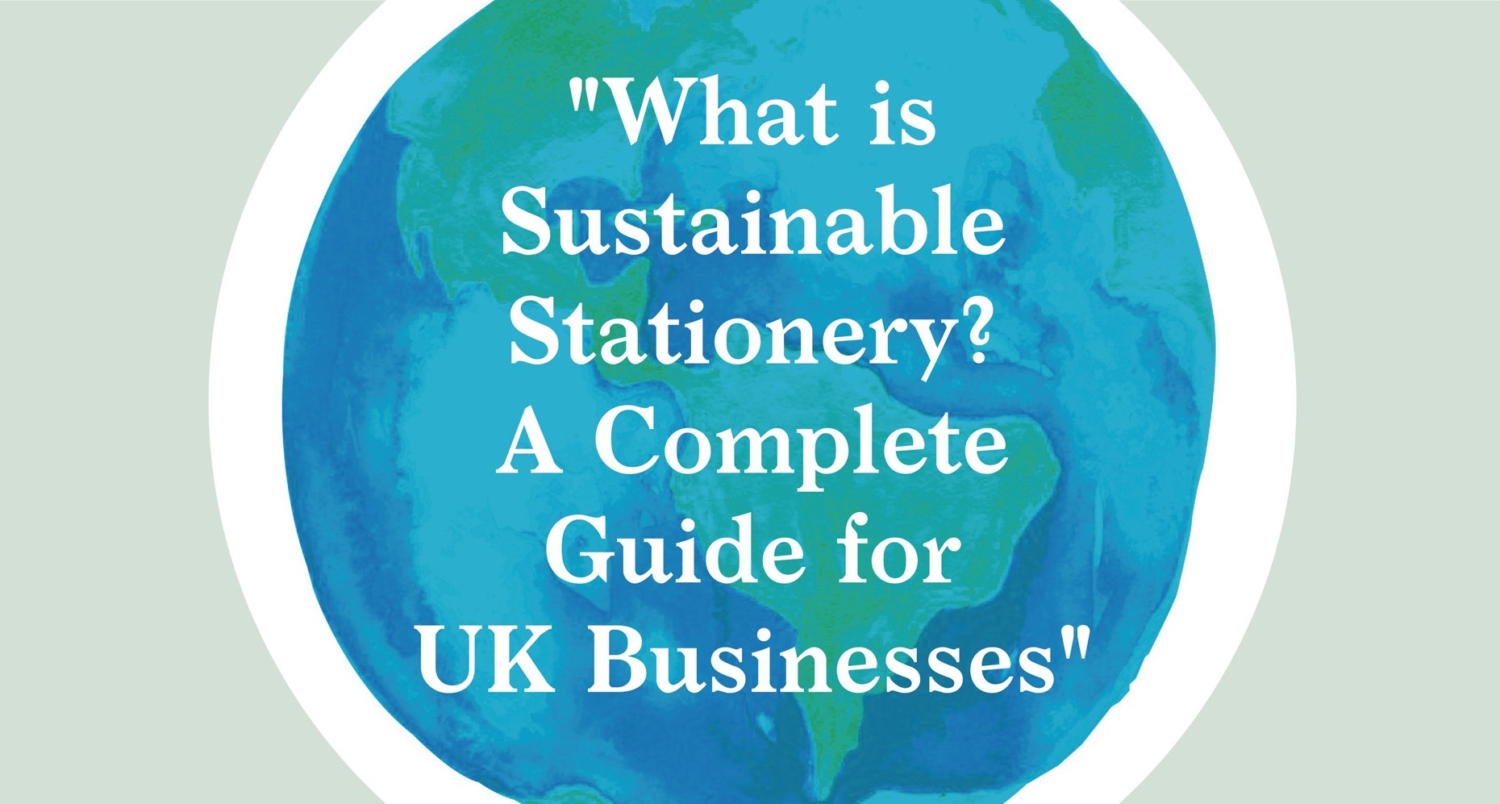What is Sustainable Stationery?
Stationery is one of those everyday essentials that every office needs, yet it often flies under the radar when businesses set sustainability goals. Pens, paper, notebooks and packaging might seem small, but together they carry a surprising environmental footprint.
That’s where sustainable stationery comes in. By switching to greener products and suppliers, UK businesses can cut waste, reduce carbon emissions and align procurement practices with their values.
In this guide, we’ll explain what sustainable stationery is, why it matters, and how your organisation can benefit from making the switch.
Is it just about the products?
Sustainable stationery is designed to minimise environmental impact throughout its entire lifecycle, from raw materials to manufacturing, packaging, distribution, use and disposal.
- Recycled materials (such as post-consumer paper or recycled plastics)
- Renewable resources (like bamboo / FSC®-certified wood or agri waste paper)
- Biodegradable or compostable materials (so they don’t end up in landfill)
- Low-impact inks and adhesives (like soy-based inks, plant-based glues)
- Ethical supply chains
- Carbon-neutral transport
- Minimal, recyclable packaging
- Circular economy models (refill, reuse, recycle)
- The company values and ethics itself
Why Sustainable Stationery Matters for UK Businesses
- Deforestation: Traditional office paper is a driver of tree loss globally, so ensure its FSC as a minimum.
- Plastic waste: Disposable pens alone contribute significantly to single-use plastic pollution.
- Carbon emissions: Stationery contributes to Scope 3 emissions, which account for the majority of a business’s carbon footprint.
- It supports net zero commitments and CSR goals.
- It helps satisfy stakeholder, client, and employee expectations.
- It demonstrates compliance with UK sustainability regulations and ISO standards.
Examples of Sustainable Stationery
- Recycled paper & notebooks
FSC® certified, chlorine-free, and made from recycled fibres. Alternatively our agri waste paper. - Eco pens & pencils
Options include biodegradable barrels, refillable ink, and recycled plastic bodies. For pencils Tree Saver pencils take the top spot. - Plastic-free binders & folders
Recycled cardboard alternatives that can be fully recycled after use. - Sticky notes & labels
Made with plant-based adhesives and soy inks. - Sustainable packaging
Compostable or recycled packaging for shipments and deliveries.
How to Choose a Sustainable Stationery Supplier
- Certifications: B Corp, FSC®, ISO 14001 for environmental management through to those with Science Based Targets.
- Transparency: Do they publish sustainability reports and measurable outcomes?
- Scope 3 reporting: Can they help you track emissions linked to stationery purchases?
- Delivery: Do they use carbon-neutral shipping and minimise packaging waste?
The Business Benefits of Switching to Sustainable Stationery
- Financial savings: Refillable pens, durable notebooks, and bulk purchasing reduce long-term spend.
- Reputation boost: Being visibly sustainable helps win tenders, attract clients, and strengthen brand perception.
- Employee engagement: Staff are proud to work for companies that “walk the talk” on sustainability.
- Compliance made easy: Sustainable sourcing supports ESG reporting and CSR frameworks.
Red-Inc’s Commitment to Sustainable Stationery
- Certified B Corp with a score above 100
- Winner of the European Office Products Sustainability Excellence Award 2025
- Accredited to ISO 14001 (Environmental) and ISO 9001 (Quality)
- Carbon-neutral deliveries nationwide
- Offering Scope 3 reporting to help clients track impact
- Have verified Science Based Targets.
FAQs About Sustainable Stationery
Conclusion
OR book a free sustainability consultation with Red-Inc here
